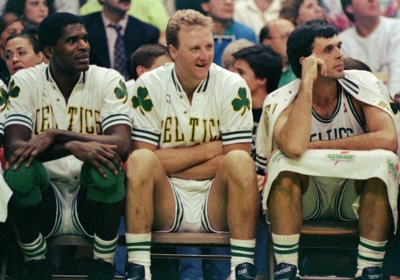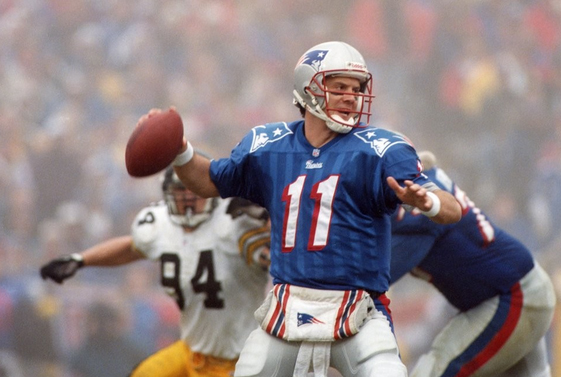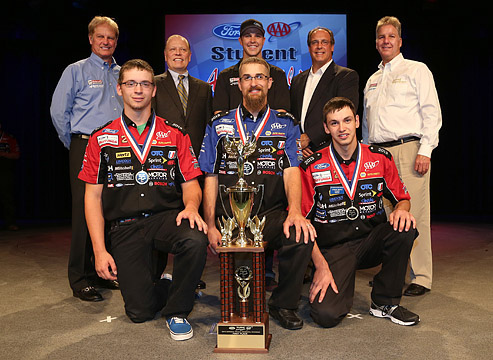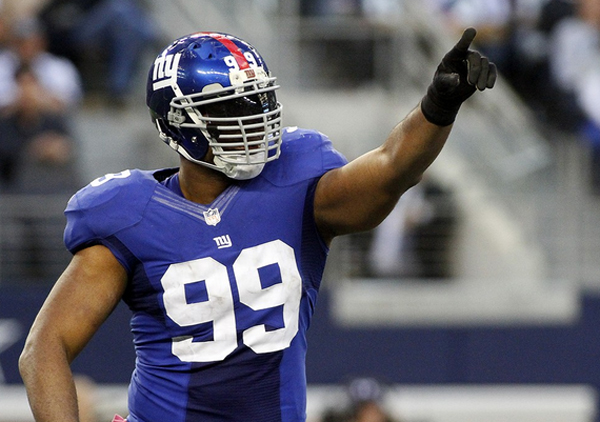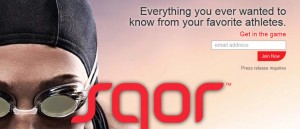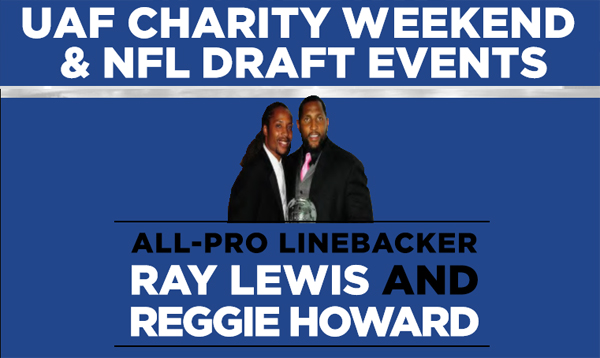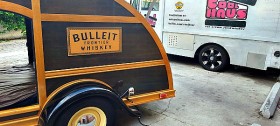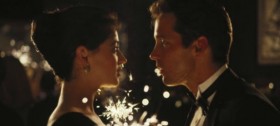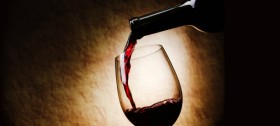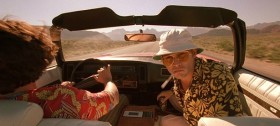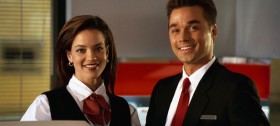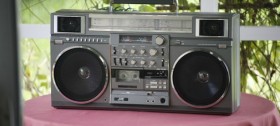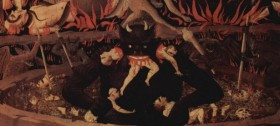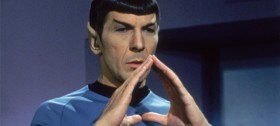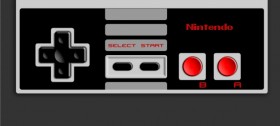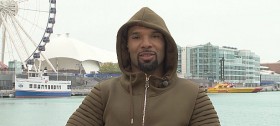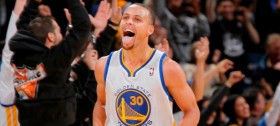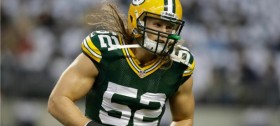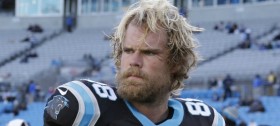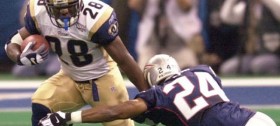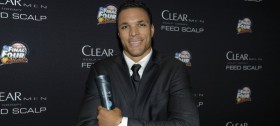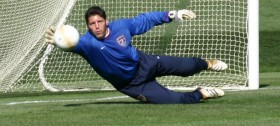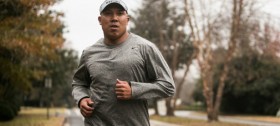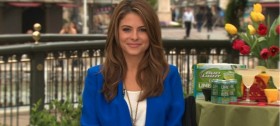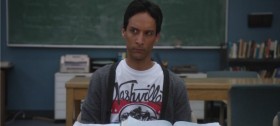Sports

Dee Brown talks about playing for the Celtics and his 1991 Slam Dunk Performance
When you think of Dee Brown a few things come to mind. One is the ridiculous no look dunk he performed at the 1991 Slam Dunk. Two is the Reebok Pump Omni Lite shoe that he made famous during that contest.
Besides winning the Slam Dunk title that year, Brown had a great career in the NBA playing for 12 years most notably for the Boston Celtics. I was able to have Dee Brown answer some of my questions while he was being interviewed for a documentary on the late Reggie Lewis, directed by Torey Champagne.
I wanted to know where and how Dee came up with the no look dunk, who if any pushed his competitive edge on the court, and how it felt to have his own shoe.
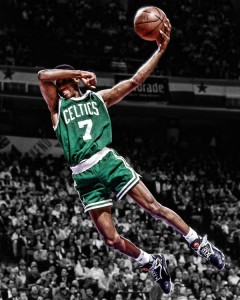 Art Eddy: How many weeks or months did you plan out the iconic no look dunk in the 1991 Slam Dunk Contest?
Art Eddy: How many weeks or months did you plan out the iconic no look dunk in the 1991 Slam Dunk Contest?
Dee Brown: The first time that I did it was in during the dunk contest. Never practiced it. I didn’t figure I was going to do that dunk until I was running towards the baskets. I pretty much knew I already won the dunk contest. So I wanted to do a signature dunk. I wanted something that everyone would remember me by.
Michael Jordan taking off from the free throw line or like the Dominique windmill, I wanted to do something that no one has ever done before. So while I am running I thought why don’t I just close my eyes? If I close my eyes no one will know that my eyes are closed because the judges are behind me. So it went from closing my eyes to maybe just putting my hands over my eyes and it just gravitated to my arm.
As I was jumping my hand going, my arm going, my eyes closing and it was the first time I ever did that dunk. I was either going to make it and have people talk about me now or I miss it and guess what and talk about it now. People would be like remember that guy that ran into the side of the backboard? That would have been me so never practiced it at all.
AE: You were going head to head with a phenomenal dunker in Shawn Kemp that year. What was it like to compete against him?
DB: The funny thing about the Shawn Kemp head to head thing was that all the contest guys were sitting all together. Rex Chapman, Otis Smith, Blue Edwards, a bunch of really good guys that could dunk, and I was sitting next to Shawn Kemp. Everyone knew who Shawn Kemp was. We both had the Gumby haircut.
So everyone is asking Shawn for his autograph. I remember one kid goes, ‘Hey what’s your name?’ I said Dee Brown. He really didn’t know who I was and he looked at Shawn and said, ‘Shawn is that your little brother?’
I said, ‘Wait a minute….wait a minute…did he just say? Ok I get it.’ That got the competition started at that moment when that kid asked me if I was Shawn Kemp’s little brother. It transpired into the contest with some great dunks. For a guy that tall at 6’10” to be able to move his body the way he did and being able to slam with so much force it was unbelievable.
I just tried to be creative as possible and do different dunks. Do things that people haven’t seen like pumping up my shoes kind of got the crowd into it. It was one of the good head to head battle in the finals.
AE: Was there one player whether it be a teammate or an opponent that drove your competitive spirit?
DB: I think the main guy was Larry Bird because he was the best player on our team. To me top two or three player in all-time Celtic history. Him and Russell. I got a chance to play with Larry. He drove me as a rookie because even though he was the best player and it sounds cliché, but he was the first guy in the gym and the last guy to leave.
He made sure I understood what Celtic Pride meant, being a student of the game. You wear the uniform the right way and respect the game. He drove me to the best player that I could be in not so much personal glory, but for the team. For all the Celtics like the Havlicek’s, the Jo Jo White’s, the Dennis Johnson’s, the Dave Cowens, and the Bob Cousy’s.
On a daily basis I got to see those guys respecting that uniform. The other guy that was more like a mentor type was Robert Parrish. He was like my big brother. He took care of me. He made sure I know what people to stay away from. Taught be to be a professional and go buy suits. He took to places on where to buy suits my rookie year. He mentored me in the professional way off the court. Larry was my inspiration and driving force on the court.

AE: Is there one thing that stands out most in your career?
DB: People would assume it would be the dunk contest because it was an individual event. I think the really big thing that drove me and stands out was when I got drafted. To hear Red Auerbach say your name. To hear him say, ‘We are taking a 6’2” guard from Jacksonville, Dee Brown.’ It is Red Auerbach.
He has said everybody’s name. Every guy that he had drafted over that 30 year time came out of his mouth. To be a part of that group and that guy wanted you, the greatest coach of all-time, to make sure that you are a part of that franchise. He wanted you to be a part of that Celtics history and Celtic pride. Just to hear him say that and be around him for so many years was such a great feeling.
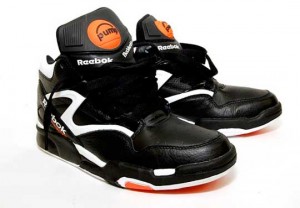 AE: How cool was it to have your own shoe?
AE: How cool was it to have your own shoe?
DB: It’s good because you can go anywhere and I mean anywhere, beyond the states, China, Australia, you say Reebok Pump and the first thing that comes up is Dee Brown. You felt like you did something. I really put a mark on a shoe and identify with a shoe.
Obviously everybody knows that you say Jordans, its one guy. It’s Michael Jordan. When you say Reebok Pump you think Dee Brown. So that is unique and it feels good. To this day 20 some odd years later people still talk about the shoe and the contest and what I did. They identify me with that. Even the kids who really don’t know or were not even born, because I work with a lot of kids on the basketball court or even guys I coach in the NBA, will say ‘You are that guy who did the pump thing.’
So it is good that people still talk about it and still identify me with it. So it is good to still be relevant in a way every few years when people want to talk about the shoe. Even in February when the Dunk Contest comes I’m popular again, so it is always good to talk about it.
Jul 2nd

MANjr’s interview with Drew Bledsoe
Drew Bledsoe is known for his great career as a quarterback in the NFL most notably for the New England Patriots. Bledsoe was the focal point of the Patriots offense which was the reason why he drafted number one overall in 1993 from Washington State University. The two time All-Pro also played for the Buffalo Bills and Dallas Cowboys.
Now retired from football Drew has pursued another career. He founded the Doubleback Winery located near Walla Walla, Washington. Along with his friend and co-founder, Chris Figgins they strive to make an outstanding cabernet sauvignon. Drew takes his new career very seriously. He looks to educate people on the fact that great wine can come from other states than just California. For more information on Doubleback click here.
Drew is also a proud father of four children. Bledsoe and his wife take a hands on approach to parenting. He and his parents created foundation called Parenting with Dignity.
I had the great pleasure to chat with Drew about his days in the NFL and how he created his wine business.
Art Eddy: Before we get into your playing days in the NFL, I first want to start off by talking about your vineyard, Doubleback Winery. What made you get involved in the wine making industry?
 Drew Bledsoe: Wine is a passion of mine and my wife as I was playing. As I started to look at life after football and what I wanted to do and how I wanted to spend my days, wine was something that had an allure for me that went in a lot of different directions. It was something that I felt I could learn about for the rest of my life and still not know everything.
Drew Bledsoe: Wine is a passion of mine and my wife as I was playing. As I started to look at life after football and what I wanted to do and how I wanted to spend my days, wine was something that had an allure for me that went in a lot of different directions. It was something that I felt I could learn about for the rest of my life and still not know everything.
I felt like it was something that would get me out of the bed in the morning and get me excited about what I was doing. When you are in the wine business you are always around interesting people, great food, and great wine. So far it has been everything we had hoped it would be. It has been really successful for us. It has been a ton of fun at the same time.
AE: Do you find it hard for people to get past the notion that in the United States only great wines come from California? 
DB: Yea, the American population in general, if you get outside the Northwest, when they think if fine red wine they think of California. They think about Napa and Sonoma. While that is challenging for us right now it also gives us a huge opportunity for growth.
Washington has continued to grow, but we got a market out there that still, in the broader market, still doesn’t grasp the quality of wine coming out of Washington state, particularly in Walla Walla. We do some tastings from time to time. There was actually one here this last weekend up in Walla Walla. It was our wines versus the best out of Napa.
Our wines stand up just fine against the very best from Napa at generally a fraction of the price. If we can get the wine in the glass and let people try it all of a sudden it is a real eye opener. This is not just another wine region. It is a wine region that is producing some amazing stuff and at generally a more reasonable price point.
AE: I know with wine you usually pair it up with a certain foods. Do you have a favorite meal to go with your wine?
DB: With our wine we strive to make a cabernet (sauvignon) that’s a little more subtle. It has a little more nuance to it. It is not so overpowering. Because of that it is a lot more versatile with what you can pair with it. We have done things like scallops. My favorite pairing right now is lamb. We have a wood fire oven here at the house. We throw some rack of lamb in the wood fired oven and that shows just amazingly with our wines.
AE: Which was a tougher challenge for you playing in the NFL or starting up your own business?
DB: There are a lot similarities really. It is highly competitive. You got to have a great team around you. You got to be excellent in every area from your production to your bottle. How it looks on the table. Your story behind it. The authentic nature of our story is a big advantage because I grew up here in Walla Walla.
If you are excellent at all of those things you can be successful which is similar to football. In football you can’t be good at just one thing. You got to be great in all phases to be really successful. The biggest difference from football to wine is if I made a decision playing football I knew instantly if it was a good decision or a bad decision. In wine it can take up to seven to ten years before you really know about the implications of the decisions you made.
AE: Now let’s talk about your great NFL career. In 1993 you were the number one overall draft pick in the NFL. Did that add more pressure for you to make sure you succeeded in the league?
DB: When you are playing the position of quarterback there is pressure on you all the time. You either love that or you don’t. I personally really enjoyed it. I enjoyed being the focal point of an organization and being the guy that had to carry the big part of the burden.
I relish that challenge of knowing that everyday an entire organization of the other side of the ball tried to devise personnel and schemes to try and shut me down. To go out and try to be successful in spite of that was a great challenge. I love that. Pressure is not necessary a negative thing. Often times it is a positive thing if you embrace it from that standpoint.
AE: You played for three very different coaches in New England with Bill Parcells, Pete Carroll, and Bill Belichick. How big of a contrast were those three coaches?
DB: It really wasn’t. The coaches that are successful share they share far more in common than people might think. If you are going to be successful you got to be attentive to all the details. You got to guide your team. You got to make sure you focus on the important parts of the game, executing consistently, eliminating distractions, and all those kinds of things.
Beyond that all you are really talking about is personality differences. Those personality differences were pretty dramatic between Parcells, Pete, and Belichick. You learn to deal with that and communicate in different ways. Parcells was loud and in your face all the time. Pete was more of a positive motivator. Bill was all business all the time. The kinds of things that you actually have to focus on to be successful they were surprisingly similar.
 AE: Speaking of threes you played for three NFL teams, the Patriots, Bills, and Cowboys. How was the transition for you to play with those three different teams?
AE: Speaking of threes you played for three NFL teams, the Patriots, Bills, and Cowboys. How was the transition for you to play with those three different teams?
DB: The first move was challenging. Going from New England where I was there for nine years where I had come pretty accustomed on how everything works and then moving to a new organization with the Bills. Once you made the move the first time it is not that big of a deal the second time.
Part of it to was from a pride standpoint it was a bit of an eye opener. When you are in there you think that you are pretty important to this organization, then you realize that you move on and the organization continues on. Once you realize that you are a cog in the machine that when your tenure is done someone is going to move in and replace you then you understand that and move on down the road. The first move was a bit of an eye opener for sure.
AE: What will you remember most about your career?
DB: There are a lot great memories. More than anything it is the relationships that you have that you look back on with the most fondness. I have developed relationships with some truly amazing people with people I played with, coaches, owners and other across the board.
In terms of certain games and memories there are some that stand out. My second year in the league when we came from behind to be the Minnesota Vikings in overtime. The year that I got hurt and Tommy played so well that I couldn’t get my job back, but I got to come in and play in the AFC Championship game against the Steelers to where I was able to help get us to the Super Bowl.
There are a lot of those memories that I look back on very fondly. The nice thing is that when you retire the negative memories fade away.
To listen to the interview click here!
Jul 1st

NASCAR driver Trevor Bayne chats about racing and The Ford/AAA Student Auto Skills Competition
Trevor Bayne had a really outstanding week this past week. He got married and then come Saturday he headed straight to Iowa where he landed in Victory Lane. This weekend he will be driving at the Michigan International Speedway.
While he is in Michigan he took part in the 2013 Ford/AAA Student Auto Skills Competition National Finals. Students compete to win scholarships and prizes. Plus the winning team will also have a weeklong job shadowing Bayne and Wood Brothers Racing leading up to and during the Coke Zero 400 this July in Daytona.
 I was able to talk with Trevor on the phone about racing, his wedding, and the 2013 Ford/AAA Student Auto Skills Competition. Plus I also got to ask him what his car of choice is when he is not on the track.
I was able to talk with Trevor on the phone about racing, his wedding, and the 2013 Ford/AAA Student Auto Skills Competition. Plus I also got to ask him what his car of choice is when he is not on the track.
Art Eddy: I have to say congratulations twice to you. One for getting married this past week and then winning the Nationwide at Iowa on Saturday. Tell me how you plan to top last weekend with this weekend?
Trevor Bayne: (Laughs) Well that was a big weekend for us. It was a big week getting married and it was a huge deal and bigger than anything I could ever do on the racetrack. I topped it off by winning at Iowa last weekend. Pretty incredible weekend for us. Ashton told me all along that as soon as we got married I had to win the next race. So I guess I should have married her a long time ago. That’s when we knew we lived up to the pressure she put on me. So we will have to keep that going.
AE: How hard was it to transition from wedding day to racing day?
TB: It was okay. I have been doing this since I was five years old. This is pretty much all I have ever known. Ashton is obviously a trooper because we got married on Tuesday. We ended up going to Iowa for our honeymoon. If she can handle that she is a big support factor.
For me as far as flipping the switch it seems like we do that every week. We have crazy stuff going on just like I am up in Michigan today. Flying back to Charlotte. Then flying back to Michigan on Thursday morning to get ready for the race. It is always a busy lifestyle, but once you get to the racetrack you can turn it all off, hop in the car and try and get the most out of it.
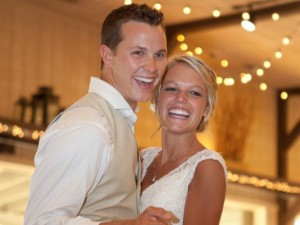 AE: People joked about having your honeymoon at the Iowa Speedway. I take it that the honeymoon will happen after this season is over.
AE: People joked about having your honeymoon at the Iowa Speedway. I take it that the honeymoon will happen after this season is over.
TB: Yea I am hoping so. I am hoping that this offseason we will get together somewhere whether it’s somewhere warm like a beach. Get to go on vacation for a little bit and call it a honeymoon. So that will be a good excuse for it.
AE: Your first win was in 2011 with coming in first place at the Daytona 500. What a place to get your first win right?
TB: Winning the Daytona 500 in 2011 was beyond anything I could ever imagine. Being my first time at that race driving for the Wood Brothers. Seeing them back at Victory Lane was worth it. I have been waiting on that moment ever since I started racing. I wanted to make it to the Sprint Cup level in NASCAR and be a contender to win.
I never really pictured it to happen that soon in the first attempt there. I just have great people around me that gave me that opportunity and a great racecar that day. Everything worked out perfect. It was pretty much a miracle. There was no way I should have won that race. I was praying all day and saying God I want to experience you and see your power. I didn’t know that that meant a win, but I guess that is how it happened that day.
AE: You are now in Michigan for the Ford/AAA Student Auto Skills competition. Tell me a bit about this great program.
TB: Yea it is an awesome program. I have been a part of it for the last three years. For that last two years I have come up to Michigan for the grand finale. Ford and AAA have put it on for the last 64 years. Ford actually has been with it for 19 years, but 64 years is how long the competition has been going on.
It starts out with 13,000 students. They narrow it down to 100 students. Two from each state along with an instructor from that state. They come here to Michigan for the finals. They had Ford Explorers here today. They were all bugged. I think that they had 14 bugs on the car. They didn’t tell what the students what was wrong. Then the students have to go in and try and figure out what is wrong, why the thing won’t run. Why the windshield wipers don’t work, or the blinkers or whatever. Try to fix the car and put it through the line for inspection.
The quickest team with the least flaws obviously, there was a perfect car today and pass a written test. The people that win that are rewarded with scholarships. They get to come to Charlotte, North Carolina for a week and hang out with our race team and then go to the Daytona Speedway with us in July.
AE: How psyched are you to be part of this program?
TB: Just getting people interested in the automotive industry whether it is working at a Ford dealership or being part of a NASCAR team. It is awesome to see these kids who are 17, 18 years old with as much knowledge as they have can perform under pressure like they did today.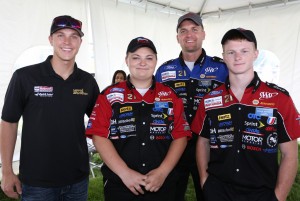
AE: Where is your favorite track to compete at?
TB: I would say one of my favorite tracks is the Atlanta Motorsport Speedway or Bristol. Bristol being the home track. Atlanta just being a cool place, kind of worn out and old school and I enjoy racing there. So I would say those are my favorites.
AE: What do you do in the off-season when you are not racing?
TB: The off-season is normally kind of time for me to reload. We go 10 months straight without any off weekend from pretty much Valentine’s Day to November. It is a lot of work and a lot of time. It is a full time job. So my wife and I would go on some trips with some friends. I try to gain some perspective because you can caught up in racing and think you have a bad day since you came in fifth. Whereas some people in the world don’t have anything.
AE: Out the cars you own which is your favorite to drive?
TB: My Ford Raptor. That thing is fun to drive. I got it in 2011 after winning the 500. I never want to give it back.
To listen to the entire interview click here!
Jun 12th

C.J. Wilson is a “Mane Man”
Head & Shoulders has just made Los Angeles Angels of Anaheim pitcher C.J. Wilson a “Mane Man.” The two are challenging guys to take a whiff of what a double dose of confidence smells like through the launch of new Head & Shoulders with Old Spice, which is the official shampoo of Major League Baseball.
Marking the brand’s third year of partnership with MLB, Head & Shoulders has boldly declared it’s the “Season of the Whiff” and their money is on pitchers, literally. For every “whiff” across the league during the 2013 regular season, Head & Shoulders will make a $1 donation to the MLB Reviving Baseball in Inner Cities (RBI) program. 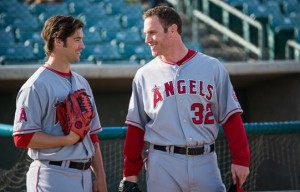
This is where you come into play! Fans can get involved by tweeting whiffs throughout the season via the #Whiff hashtag along with their favorite team’s Twitter handle to rack up the donations for their teams’ local RBI leagues and also have the chance to win cool MLB prizes.
The RBI program is the MLB youth initiative designed to give young people from urban and underserved communities the opportunity to play baseball and softball, encourages academic success and achievement, and teaches important life lessons and values. So you get to talk smack about other teams as your favorite team’s pitchers has batters looking silly.
On working with Head & Shoulders Wilson said, “I’m excited to be working with Head & Shoulders this season promoting the ‘Season of the Whiff.’ My job is to strike people out, that’s why the Angels brought me in. So if any hitters out there want to help the kids, just go ahead and strike out.”
For more info on this great promotion check out the Head & Shoulders for Men Facebook page.
Jun 3rd

Rich Franklin Interview
Rich Franklin has many passions. One of course is fighting in the UFC. Franklin has won three UFC Middleweight Champions by defeating Evan Tenner in 2005, Nate Quarry in 2005 and David Loiseau in 2006. He has wins against legendary fighters such as Wanderlei Silva and Chuck Liddell. Outside the ring, Franklin was spotlighted by the UFC and became an ambassador for the organization, traveling all over the world including Canada, Germany and Ireland on behalf of the sport to speak about such topics such as sport safety and other controversial topics to educate the public.
Rich supports the Disabled American Veterans group and has been a spokesperson since 2006. He has made numerous trips to supports the troops in Iraq, Persona Gulf, Italy and Bahrain as well as has visited the Bethesda Naval Hospital, Wounded Warrior Barracks Camp Lejeune and the UCLA Veterans hospital as well as numerous other military facilities domestically. He also holds the Cancer Kids Foundation and organizations that support breast cancer research close to his heart as well as the American Heart Association. He is looking to open his new juice bars in Los Angeles called Zelin.
Rich took time out of his busy schedule to talk UFC, nicknames, and much more!
Art Eddy: Before fighting in the UFC you used to be a high school teacher. How did you transition from being a teacher to a UFC fighter?
Rich Franklin: I think a lot of people get caught up in the Hollywood notion that I was a teacher one day and the next day I was a fighter. It wasn’t like that. My senior year of high school I was playing football, but I knew I wasn’t good enough to play in college. After football I got into martial arts because I needed something to fulfill that competitive spirit and I was always an athlete.
It started out strictly as a hobby. I enjoyed martial arts because I was able to stay in shape and also defend myself. That year the UFC came out and I started watching it. I became addicted to watching the fights. My senior year in college one of my buddies dared me to do an amateur fight and I did.
I happen to be really good at it. I had no aspiration to do this professionally. It never really entered my mind until my third year of teaching. I woke up one day and thought I wonder if I could fight professionally and that it would be my full time job. I asked a gentleman that was managing my training if I could do this professionally. He said that I would do really, really well.
It was a tricky process. I spent five years in college. I had two undergrad degrees. I went back for my masters in the summer while I was teaching. I told myself that I was going to walk away from something that I was doing for my whole life and try something completely different.
AE: How stressful was it to make that leap from teacher to fighter?
RF: It was really stressful more on the financial side of things. My last year of teaching was 2002. If you look at the history of MMA back then it wasn’t really that popular. It wasn’t like I thought of leaving teaching to become a professional football player.
When I told my dad that I was leaving teaching and going into fighting, he told me that I was wasting my education. When I told him the news I really think he wanted to hit me. (Both laugh). So during my training I wasn’t working. I didn’t have any paychecks coming in. Fortunately my wife was working. She is a teacher. It kept us steady. I had some money saved, but we were watching our finances closely.
I knew that there were a couple of matches that I needed to fight in to advance my career in MMA. If I won these fights it would put me in the right direction to have a great career. At times it felt like a slow process and I thought of going back to teaching because I didn’t see any financial reward. There is only so much time that you can do this without health benefits and you say to yourself that I might need to do something else.
AE: Once you started to make a name for yourself in UFC what did your dad say?
RF: It’s funny many people ask me what is my proudest moment in my career. They are expecting me to say a time that I knocked out someone in a fight. For me the proudest moment in my career is when my dad told me in hindsight you made the right career move. To me that moment is the most rewarding point in my career.
 AE: Speaking of highlights in your career, you are a three time UFC Middleweight Champion. Do you remember each title match? Does one stick out more than others?
AE: Speaking of highlights in your career, you are a three time UFC Middleweight Champion. Do you remember each title match? Does one stick out more than others?
RF: It is funny you ask that. To me winning the title was anticlimactic. I was so focused on the goal that I didn’t enjoy the ride. I remember that first time I won the title I took the belt home and went back to my hotel room. I looked at the belt and went from a stadium that had thousands of fans screaming to a room that had my coaches and a few of my closest friends.
I asked my friends if this was what it was supposed to be like just me and a few of my closest friends in silence. I didn’t know if I was expecting a ticker tape parade like when soldiers came back from World War II, but I didn’t enjoy the ride. That time was really like a blur. It just happened so quickly.
AE: Who would you want to fight next?
RF: I don’t really care. I am training, but I am not fight training. There is a difference between just training recreationally and training for a fight. My fight time table so to speak has been pushed back a bit. For me I look at a fight to see if it makes sense.
If the fight looks like it will be exciting and the fans will enjoy it than that is a fight that I want to be in. My fans on Twitter say I should fight Michael Bisping. Now suddenly all the headlines are saying that I am calling out Bisping. That isn’t the case. If I mention his name on Twitter it is because I think he is a great fighter and I respect him, but I never called out anyone to fight against.
AE: Speaking of Twitter, do you think it is funny how close fans can get to you and other MMA fighters? Plus do find fans or people might twist your words when you say something on Twitter?
RF: Oh all the time. First off I grew up when the internet wasn’t that popular. I didn’t have an email account until college. Today kids only know of a world with the internet. Now people just use 140 characters on Twitter to get their point across and someone might flip that around to hear what they want. You have to watch what you put out there since everyone has access to it.
AE: For those who don’t know tell me how you got the nickname “Ace?”
RF: Just last night I was at a store and someone swore up and down that I was Jim Carrey. She couldn’t believe that I wasn’t him. I fed into it a bit in the beginning which I probably shouldn’t have, but it was funny. So since I look like Jim Carrey and he was the star in “Ace Ventura: Pet Detective” I got the nickname of Ace.
People have amazing nicknames like “The Hammer” and “Bone Crusher.” It is like the movie “Top Gun.” Everyone had a cool nickname like “Maverick.” How is that for a great nickname? I tried to play the name of “Ace” like it was cool, but no. People say I look like Jim Carrey on steroids. Not saying I am on steroids, but that is what people tell me.
AE: Watch people read this and all of a sudden MMA fans on Twitter say Rich Franklin is on steroids.
RF: (Laughs) Yea right. I can see the headlines now Rich Franklin is on steroids. You never know what type of headlines people will come up with.
 AE: How has your training evolved from when you started fighting to now?
AE: How has your training evolved from when you started fighting to now?
RF: Training has changed quite a bit. When I started out training for MMA I saw that fights would be one fighter’s style versus another fighter’s style. Now you need to be good at all kinds of martial art styles. I consider myself a second generation of MMA fighters. I started to see people mesh different styles together. So I started to do that as well when I was training.
When I was five years old I never said I want to be a UFC Champion. It didn’t exist. I wanted to play football. Now kids grow up saying that they want to get into MMA and fight in the UFC. So people at a young age are learning to fight different styles of martial arts. Instead of having to go through how to find which forms of martial arts will work for them, they learn how to mesh them all together. Training has definitely evolved since I started.
AE: You are working on opening up a new juice bar in Los Angeles. Tell me how you started that up?
RF: It isn’t open yet, but we are working on it. The juice bar is called Zelin. The juice bars will feature whole food blending, recipes designed by chefs, and low-calorie vegan pastries that will separate us from the other organic juice companies out there.
There are these vegan chocolate chip cookies that are amazing. Once you tasted them you would not know that they were vegan cookies. I can’t wait for the stores to open up.
AE: You are the author of “The Complete Idiots Guide to Ultimate Fighting.” What made you write that?
RF: At that time I was approached by the publishing company about this book. It took a long time to write that book. There were revisions after revisions. I was telling people that I would not ghost write another book again. I would just write my own book. It would be much easier.
At the time the UFC was not widely known and we thought there would be a great market for that book. The causal UFC fan might not know all the terms and this book helps with that. People could pick up this book and learn more about the sport. I think most of the people that bought the book did it for their UFC collection.
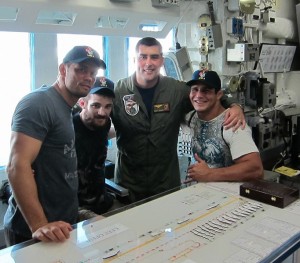 AE: You support the Disabled American Veterans group and has been a spokesperson since 2006. What made you get involved with that foundation?
AE: You support the Disabled American Veterans group and has been a spokesperson since 2006. What made you get involved with that foundation?
RF: They have a station in Northern Kentucky. I am originally from Cincinnati and one of the guys that is involved in that organization was working out where I trained. He approached me because I was doing a ton of military stuff. I went overseas to visit the troops in places like Iraq and Japan. I also visited some of the VA hospitals.
These guys knew that I had a thing for helping veterans and asked me if I wanted to help out. I told them whatever they needed. I am passionate about the military especially the disabled veterans. I was at the Intrepid in San Antonio and saw all the different prosthetics that are being made. They look to make these prosthetics to help people who are athletes and still want to be active.
I went to Aspen for an event that they were having and these guys were beating me in hockey and skiing and everything else. I tell you these guys are legit. One of the guys I went skiing with I told him something along the line of I’ll see you at the bottom. He says yea if you can keep up. Sure enough he beat me and I could not keep up with him. These guys are amazing to see what they can do.
I told the DAV that I would love to come back and help out again. I would love to run an MMA seminar for these guys. It just my way of giving back. I am a very blessed individual and I just want to do my part and give back to the community.
May 10th

Hines Ward BECOME ONE Giveaway
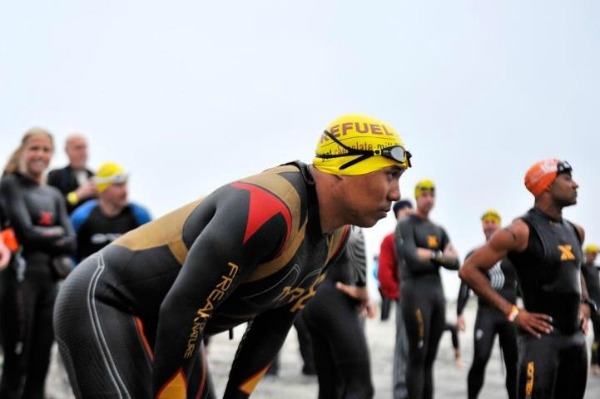
Hines Ward’s REFUEL web series, BECOME ONE, highlights the former football star’s training efforts as he prepares to compete in the 2013 IRONMAN® World Championship triathlon in Hawaii this October. in our Hines Ward interview that we posted a few weeks back, Ward talked about BECOME ONE and the training that goes into triathlon prep. The first episode of the BECOME ONE documentary web series can be seen at gotchocolatemilk.com.
Being a Steelers fan and a big supporter of anything involving chocolate milk, I definitely wanted to follow along as Hines makes the transformation from retired football menace to endurance athlete extraordinaire. Here’s a look at the second episode of the 10-part BECOME ONE series:
This past weekend , Hines competed in the St. Anthony’s Triathlon in Florida. Ward must’ve been happy that the swim portion was cut short due to choppy waters. He completed the triathlon in 2 hours, 26 minutes and 37 seconds. His splits were 15:53 for the swim, 1:33:27 for the 40-kilometer (24.9 mile) bike ride, and 51:27 for the 10-kilometer (6.3 mile) run
To help promote Ward’s journey and the BECOME ONE series, we’ve partnered up with REFUEL | got chocolate milk? to provide a sweet giveaway for one lucky reader. The winner of this giveaway will receive three pieces of REFUEL branded Nike gear: two pro-combat dri-fit black t-shirts and one white mesh cap. We’ll even throw in an autographed football from Hines himself.
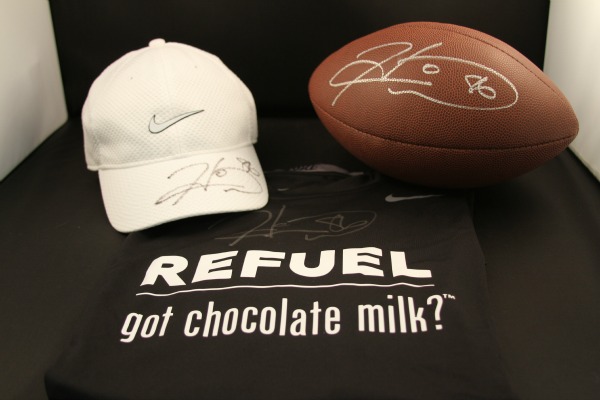
To enter, just follow us on Twitter (@MANjr) and drop us an email below. Good luck!
May 1st

Chris Canty tells us how we can hang with him at the NFL Draft….Virtually!
Super Bowl Champion Chris Canty was a standout defensive lineman for the Dallas Cowboys and New York Giants before signing this offseason with the defending Super Bowl Champion Baltimore Ravens, so he’s used to being in the media spotlight. But now the 9-year NFL veteran is flipping the script, serving as a special correspondent and NFL draft insider for Sqor, the groundbreaking new digital sports platform.
Sqor, from digital sports innovator Virtual Fan Network (www.virtualfannetwork.com), connects fans to the athletes and sports they love. Sqor combines the latest from social platforms such as Twitter and Facebook, sports news sites such as Sporting News and ESPN, and video, photo and original athlete-produced content, all in a highly visual, deeply engaging, personalized experience.
Throughout draft week, Canty previews the first round of the draft on Twitter (@ChrisCanty99), offers one-on-one interviews with top draft picks and takes fans behind the velvet ropes, giving them behind-the-scenes access to exclusive NFL draft parties.
You’re invited to sign up now at www.sqor.com to be a part of the conversation as the NFL veteran evaluates the next generation of NFL stars. Visit sqor.com or follow @sqor on Twitter for Canty’s candid analysis of every pick as it happens.
Even with his busy schedule Chris took the time to speak with me about the NFL draft this week, his career, and his foundation. Make sure you check out how Chris helps out the community by going to his foundation’s website.
Art Eddy: The NFL draft starts tomorrow and goes through the weekend. You are working with Sqor as a draft insider. Can you tell me a bit about what you are doing?
Chris Canty: Well I am excited to be working with Sqor, which is a new digital media platform. Fans have the opportunity to interact with me. They get to follow what is going on with my Twitter, my Instagram, my Facebook, as well as articles and any other cool things that normal fans don’t have access to. It gets fans closer to me and the field.
I am really excited about this. It is going to be cool to hang out in New York City for this draft weekend. We are going to be working with some of the draft prospects and going to be interviewing them. We get to see how they are feeling. We are really excited about this.
AE: So people can follow you on Twitter to at ChrisCanty99 to stay informed about the draft?
CC: Yep. People can follow me at ChrisCanty99 and follow all of the interesting draft things that are going on this weekend. Plus moving forward people will get to follow what I have going on moving forward with the Baltimore Ravens and in the community.
AE: You signed with the Ravens this offseason. How has the transition been so far?
CC: The transition has been pretty good. I am getting a chance to be in there with my teammates. I get to work in the offseason programs these past couple of weeks. It has been great getting a chance to know those guys and have the guys know me. It has been really good.
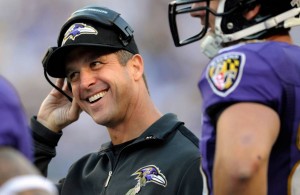 AE: How much have you spoken with the team and John Harbaugh?
AE: How much have you spoken with the team and John Harbaugh?
CC: He is a pretty cool customer I have to say. He is a good coach and a lot of the guys respect him. What you see is what you get and that is always a plus when you are talking about a coach in the National Football League.
AE: You won a Super Bowl with the New York Giants when you beat the New England Patriots. The Ravens are coming off this past season winning a Super Bowl. How can you help your new team avoid a Super Bowl hangover?
CC: We have a very young football team. One of the things that I try to reiterate with those guys is that don’t allow the complacency to set in. Make sure you continue to focus on the details and little things. Those things add up to big things and those things adds up to wins and losses.
What you want to do as a football champ is to let those guys know that you just can’t pick up where you left off and that they have to start anew every season. Every team that comes together is a brand new team. Last year’s team was the Super Bowl Champs, but that team is done. We are in the process of putting together the 2013 Baltimore Ravens.
AE: With Ray Lewis and Ed Reed no longer on the team, two big leaders on the team, how do you think the defense will respond this upcoming season?
CC: I think coach Harbaugh and GM Ozzie Newsome have a great plan to bridge some of the gaps of some of the losses they have. Understanding that they can’t replace those guys. They are legends, but understanding that they are trying to put together a new football team. I think that they started with some great additions. They brought in Marcus Spears. They brought in Michael Huff. They brought in Elvis Dumervil. They got some great pieces that they added to the football team, especially on the defensive side of the ball.
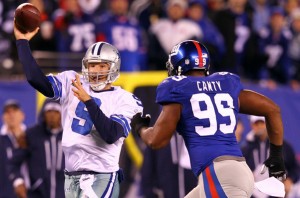 AE: You have played for the Dallas Cowboys and New York Giants. The two teams have a huge rivalry. How was it to play on both teams and compete in those games?
AE: You have played for the Dallas Cowboys and New York Giants. The two teams have a huge rivalry. How was it to play on both teams and compete in those games?
CC: I tell you what being in those games was like a war. Anytime that you talk about those division matchups it is definitely a tough and hard fought game. I got to tell you that you come out a little more bruised and sore after those games than just another regular season game. Everybody is trying to fight and scrap to give themselves the best chance to get a leg up in their division.
AE: Now as a Raven you will be facing rivals like the Pittsburgh Steelers. Do players get hyped for these games that fans consider to be a rivalry game or is it the media just putting too much into these games?
CC: I am a football junkie so to speak, so I am always watching other teams. I am always watching those AFC North match-ups. I am very familiar with those teams in that division. I will be putting more a microscope on those teams now than I have in the past. I know what those teams like to do and the types of personalities on those teams. It sure will make for some fun and exciting games this fall.
AE: Tell me about the Chris Canty foundation.
CC: It is a foundation that focuses in on the empowerment of the youth. We concentrate on three main areas of working with a child. We concentrate on fitness. We concentrate on education and we concentrate on service. It is not just enough to instill live lessons and core values in a child, but we also want to make sure that each child that we work with understands their responsibility to pay it forward and give back to the community.
We have a lot of cool programs from different service initiatives and service organizations throughout the Tri-State area as well as North and South Carolina. We have a mentorship program. We have a leadership academy program. We are really excited about the things that we are doing with young people.
To listen to the entire interview click here!
Apr 24th

Former NFL Cornerback Reggie Howard Talks Football, His Foundation, & More
Reggie Howard played for six years in the NFL. He played for the Miami Dolphins and the Carolina Panthers. He is retired from the game and is now helping out other athletes by empowering then to impact communities through education and social development. Along with Ray Lewis, Julius Erving and others they are looking to make a difference in their communities with the United Athletes Foundation.
They are having a raffle where you have a chance to win a trip to New York City to meet Ray Lewis during NFL Draft weekend at various VIP events! The deadline to enter is April 23! Click here for more details.
The United Athletes Foundation is a 501c3 public non-profit organization created in 2008 by a group of professional athletes who understood their unique role in improving the lives of both the athlete fraternity and society in its entirety. To date, there are more than 90 professional athletes associated with the UAF including members of the NFL, NBA, MLB, WNBA and professional boxing.
I was able to chat with Reggie about the NFL Draft weekend promotion, the UAF, and football.
Art Eddy: Tell me about the promotion you have for your foundation, the United Athletes Foundation and how it revolves around the NFL Draft weekend.
Reggie Howard: We have a nice promotion for the fans. For the past four years we have been working events at the NFL Draft weekend with players become of aware of financial security. We also have an award ceremony where we give an award to the MVP of the community.
So this year we thought it would be great to have this promotion where we put out a raffle where one lucky fan can have the opportunity to attend the event with an all-expense paid trip to New York City and bring one guest to hang out with the UAF. We have been getting the word out about and people are getting excited. This year we have one of the key members of the United Athletes Foundation, Ray Lewis and he is the key spokesperson for this. The winner gets to spend time with us and see what our foundation does and how we help out the community.
AE: You are working with Ray Lewis for this promotion with the UAF for the NFL Draft weekend. How is it to work with Ray for this promotion?
RH: Ray has been great. He is actually one of the co-founders of the United Athletes Foundation and is also the chairman. He is a guy that really cares about the community and has a big heart. One of the main things that we focus here in our organization is to let guys know how important it is to be community leaders.
The second thing is that the NFL is great, but there are things outside of the game that we really need to have a focus on and that is family, community, and a great understanding as it pertains to financial literacy. That is one of the big things in our organization. We need to put things in place where guys have resources where they can learn more about finances. They can also learn to be protected from fraudulent financial activity from advisors.
It is a great weekend because we have great events planned. We had Jim Brown pass the torch so to speak to Ray and one of the people we are thinking of presenting the MVP award to is Adrian Peterson. He is a great guy that is not only a stellar player on the field, but also has a big, big heart for his community. UAF is all about team concept in the world of philanthropy and showing the importance of what our responsibility is to the community.
AE: In your NFL career you played mostly for the Panthers. Looking back at your career what stands out the most with your time in the NFL?
RH: I really enjoyed my time playing in the NFL. It was a great experience. I would say the biggest thing is the camaraderie of playing with players and competing on the top stage. Playing in the NFL is going up against the best of the best. Every day that you go out you are competing at your highest level.
One thing coach (John) Fox told us is that if you are not getting better you are getting worse. Nobody ever stands still. It is a true statement. Anytime that you are not putting forth your best effort you give an opportunity for your competition to get better. For me it was definitely the camaraderie of it. The highlight was playing in the Super Bowl. There is no feeling like that. To be on stage where all eyes are on you and you are trying to win a championship. Not everybody gets that opportunity and when you get there it is a special, special moment.
AE: Speaking of Super Bowl XXXVIII, you and the Panthers fell short of beating the New England Patriots. You did intercept Tom Brady though not that many people can say they did that. Do you remember that play?
RH: You remember everything you did in that game. It was funny because when we were preparing for the Patriots it was very hard. They had so many packages out there offensively that you never knew what they were going to do. They had so many things that they could do as an offense that it was hard to prepare for them. It is hard for a defense to pick up tendencies on teams like the Patriots. That is why they are so successful offensively.
On that play that I got the interception on is funny because that is one of their key plays and key formations that they run. This was one formation that we prepared for that week. They like to have trips on one side and two receivers on the other side. They like to run double smashes from the outside receivers and have the inside receiver run the seven route to the corner.
I basically recognized the formation. I played it where I led Tom believe that I was going to man to man and then I actually backed up and I got the interception. I got tripped up by one guy and if not for him I could have taken it all the way. Muhsin Muhammad took it to the house after we got the turnover and helped us with gaining some momentum. It was a great game and it came down to the wire. We are not the only team to lose to the leg of Adam Vinatieri. (Laughs) After that the NFC Championship ring went back in the closet and I didn’t want to see anything with a Patriot sign on it. It is no fun being second place at the Super Bowl.
AE: Playing cornerback is tough since you are going up against some great athletes. Who was the hardest wide receiver to cover?
RH: I would have to say Randy Moss. At that time he was playing in Minnesota and that guy was tough to cover. He was well feared by players back at that time.
AE: Who talked the most trash?
RH: Keyshawn Johnson by far. Keyshawn talked a lot. I would say looking back it had to be Keyshawn. That guy was always talking.
Apr 20th

Tony Gonzalez Final Four Interview
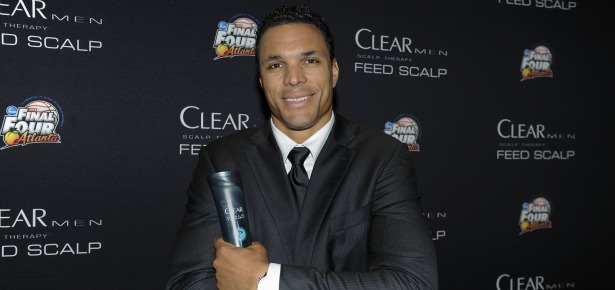
When Clear Men’s Scalp Therapy sent us to the Final Four in Atlanta, we got to spend a few minutes with Falcons tight end, future Hall of Famer and all-around gamer Tony Gonzalez. Gonzo just agreed to come back for one more season with Atlanta. Although he signed a two-year deal, he made it clear that the second year was just in there for cap reasons. The upcoming season will be his last.
And what a career he’s had. He’s a 13-time Pro Bowler (with 10 All-Pro seasons). He’s caught more passes (1,242), for more yards (14,268) and more touchdowns (104) than any tight end in history. His spot in Canton must already be reserved. He’s slam dunk first ballot hall of famer. And, you know, he can dunk, too.
Gonzalez played college basketball at Cal. During his junior year, he played in 28 games and averaged 6.8 points and 5.4 rebounds as a member of the Cal team that made it to the Sweet Sixteen.
Gonzalez is now a spokesman for Clear Men Scalp Therapy. We caught with him at the Coke Zero Fan Experience in Atlanta the day before the Final Four kicked off. We talked about the thrill of playing in NCAA Tournament, what jersey he was going to wear when he finaly gets to Canton, his excitement for next season and what makes Clear Men Scalp Therapy so awesome. Here’s the interview:
While in Atlanta for the Final Four, Gonzalez shot a series of videos for Clear Men that provided tips for creating The Perfect Fanual. Here’s the whole series:
Apr 15th

A Look Back at a Fantastic Final Four
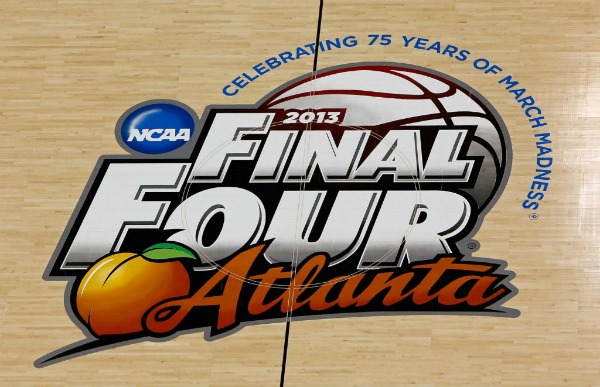
The Madness of March has subsided, but the memories of a fantastic Final Four remain. It’s hard not to get caught up in the NCAA Tournament in any given year, but there was something about the 75th anniversary of the Final Four that distinguishes it as one of the better Big Dances in recent memory. I can’t remember the last time I saw so many strong finishes, early upsets, busted brackets and broken bones.
It’s hard to pinpoint what made the 2013 tourney so special. Watching Harvard and North Carolina A&T win their first tournament games was pretty cool. Maybe it was Florida Gulf Coast becoming the first #15 seed to advance to the Sweet Sixteen, in just their second season of eligibility. I mean, who wasn’t cheering for Dunk City at some point? Or maybe it was the Shockers shocking their way from a #9 seed, past Gonzaga and into the Final Four.
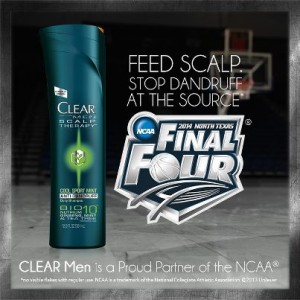 After so many brackets were destroyed, the three Final Four games were definitely ones to remember. Our friends at Clear Men Scalp Therapy sent us to the Georgia Dome in Atlanta to watch the two Final Four semifinal matchups, and it was incredible – great seats, two really good games, a trip to the championship on the line.
After so many brackets were destroyed, the three Final Four games were definitely ones to remember. Our friends at Clear Men Scalp Therapy sent us to the Georgia Dome in Atlanta to watch the two Final Four semifinal matchups, and it was incredible – great seats, two really good games, a trip to the championship on the line.
For the fourth year in a row, only one #1 seed made it to the Final Four (Louisville). They went on to win it all, but not without some serious challenges and some ridiculously clutch play by Final Four MOP Luke Hancock.
Wichita State became the second #9 seed to advance to the Final Four (Penn did it in 1979). They were also the first Missouri Valley Conference team to make it to the Final Four since Indiana State (also in 1979). It was the first time Wichita State appeared in the Final Four since 1965, and that 48 year gap is the fourth longest Final Four drought streak on record. Only Wisconsin, Stanford, Texas and West Virginia had longer waits between Final Four appearances.
The Michigan and Syracuse game marked the first time in tournament history that two #4 seeds have met in the Final Four. The Wolverines reached their first Final Four since the Fab 5 era. And Syracuse was in the Final Four mix for the first time since Carmelo the Orangemen to a title in 2003.
Wichita State put Louisville in a 12-point hole with 13:35 left in the game, but the eventual champs roared back with Luke Hancock scoring 20 points off the bench. No. 11 fired up the crowd and fed his teammates with energy as the Cardinals rode the emotion to victory.
The Michigan-Syracuse semifinal was a game of runs. The Wolverines attacked Syracuse’s zone defense early and often in the first half. With heavy contributions from the bench, Michigan jumped out to an early lead before Syracuse rolled back in the second half. Clutch three point shooting and serious board crashing allowed Michigan to hang on for the win.
The championship game was another gem. Louisville dug themselves a hole again with a 12-point first-half deficit. Hancock contributed 22 points off the bench and picked the team up yet again. The guy hit four huge three pointers in a row to get the Cardinals back into it. Freshman Spike Albrecht answered for Michigan from three point land, but it wasn’t enough. It was a back and forth battle that looked like it could go either way, but Louisville just kept getting after it and eventually they pulled away and cut down the net, with injured guard Kevin Ware getting the final honors with the scissors.
It was a great finish to an amazing tournament and a fun experience all around thanks to tournament sponsor Clear Men’s Scalp Therapy.
Apr 15th

